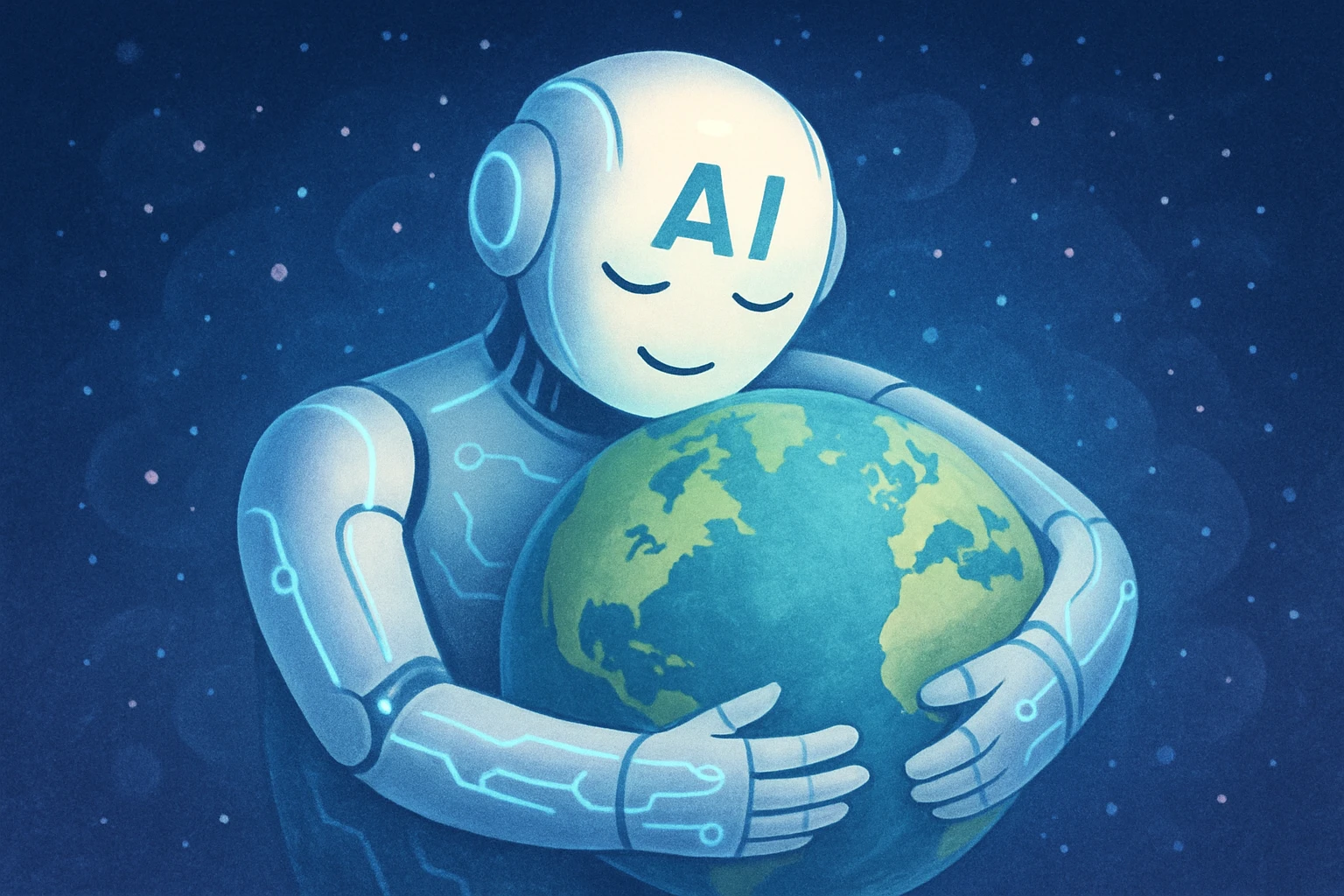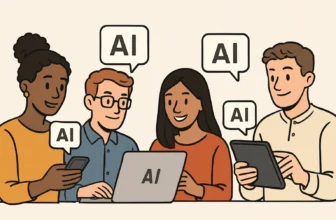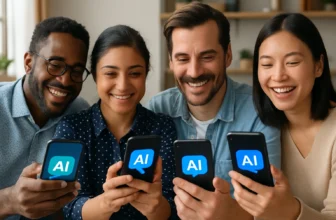
Is AI the Secret Weapon in Global Health?
What if I told you that artificial intelligence (AI) can now predict disease outbreaks before they even start? Yep, that’s not sci-fi. It’s happening — and it’s completely changing how we handle global health disasters.
Let’s be real for a sec. The past few years have made one thing painfully clear: our global health systems weren’t exactly ready when crisis hit. Hospitals stretched too thin. Supplies running out. Response times all over the place. And honestly, it felt like we were always one step behind.
That’s where AI in healthcare is stepping in — like a superhero with a stethoscope and a laptop. I mean, who knew code could help save lives?
So, how is AI reshaping global health technology and making a difference?
1. Predicting Pandemics Before They Spread
Imagine this: AI scans news reports, social media, flight patterns, and climate data in real-time — and flags potential disease outbreaks before they spiral. That’s what platforms like BlueDot are doing. It actually sounded the alarm about COVID-19 days before the world took notice. Wild, right?
Takeaway: We’re no longer relying only on human decision-making speeds. AI can sift through massive amounts of data in seconds, giving us a head start when every minute counts.
2. Optimizing Healthcare Resources
AI doesn’t just predict — it helps manage what happens after. Picture this: an overwhelmed ER suddenly gets a surge of patients. AI algorithms can help hospitals triage patients, predict resource needs, and distribute care more efficiently. It’s like having a super-calculator for saving lives.
Takeaway: That means shorter wait times, better outcomes, and less burnout for healthcare workers (can I get an amen?).
3. Personalized and Remote Care, Powered by AI
With clinician shortages and rural areas often underserved, remote monitoring tools and symptom-checking chatbots are becoming game-changers. I tried one for a minor scare recently (hello, WebMD-induced panic…), and it walked me through symptoms better than I expected — while keeping unnecessary trips to the clinic off everyone’s plate.
Takeaway: AI bridges the access gap and keeps care going, even in remote or overloaded areas. Plus, it empowers you to better understand your health.
So, is AI the silver bullet for global health? No tech is perfect — but AI is proving to be an incredibly powerful partner. When paired with the heart and expertise of health professionals, it opens doors we couldn’t even imagine a few years ago.
The future of health is faster, smarter, and more collaborative — and thanks to AI, it’s already here.
Stay tuned, because we’re about to dive into some seriously cool ways AI is showing up when it matters most. Ready?
How AI Detects Pandemics Faster
Did you know that some AI systems catch the signs of a disease outbreak weeks—sometimes even months—before governments do? Yep, that really happens. In fact, one AI platform flagged COVID-19 risk nine days before the World Health Organization made a public statement. Wild, right?
Let’s be honest—when it comes to detecting new diseases, we humans have a bit of a lag. Think of it like trying to catch a text message with a fax machine. Outdated, slow, and frustrating. The traditional approach—waiting for hospitals to report clusters of symptoms, verifying those cases, sharing data between agencies—can take weeks. And that delay? It costs lives, resources, and peace of mind. Nobody wants to be caught off guard by the next pandemic, but the way we’ve done things in the past hasn’t been enough to keep up.
That’s where AI comes bursting through the door like a superhero with a data cape.
So, how does AI speed things up?
AI doesn’t sleep. It combs through thousands of data points—social media posts, flight records, news articles, even search engine trends—to spot patterns most of us would miss. Think of it like disease radar.
I’ve seen this magic myself during flu season. A public health tool I came across used machine learning to track Google search trends like “sore throat” and “flu symptoms near me.” It then predicted regional flu spikes, giving clinics a heads-up so they could stock up on vaccines and supplies. Pretty clever, right?
Real talk: AI doesn’t just help—it transforms
One standout example is BlueDot, an AI platform out of Canada. It analyzed airline ticketing data and news reports in multiple languages and actually flagged the early signs of COVID-19 before it made headlines. While humans were still scratching their heads, this algorithm was waving red flags from the rooftops.
That kind of lead time means health agencies can start prepping early—ordering masks, issuing travel advisories, and informing the public before panic sets in.
What can we do about it?
For those of us in healthcare—or just super interested in it (hello public health nerds, I see you!)—here are three actions that can make a huge difference:
- Integrate AI tools: Encourage hospitals and public health systems to use early detection platforms. Even small clinics can access AI dashboards.
- Push for data sharing: The more open our health data (while respecting privacy, of course), the smarter the AI becomes.
- Train teams: Let’s not just trust the AI—let’s understand it. Upskilling healthcare workers to collaborate with these tools is a game-changer.
Bottom line? The sooner we embrace AI in public health, the better equipped we’ll be next time something microscopic tries to shut down the world again.
It’s not about replacing people—it’s about giving them a serious leg up. Imagine doctors, nurses, and researchers working with AI, spotting threats before they explode. That’s the kind of future I want to live in—don’t you?
Personalized Medicine Through AI
Did you know that nearly 75% of patients experience side effects or poor outcomes from at least one prescribed medication each year? Yeah… that stat floored me too. It paints a clear picture, right? Our current “one-size-fits-all” approach to medicine doesn’t always, well, fit.
Think about it—when you walk into a doctor’s office with symptoms, chances are you’ll get a treatment plan based on averages. Average age. Average response. Average patient. But when have any of us ever truly been “average”? We all have different genetics, lifestyles, and even gut bacteria (yes, your microbiome is one-of-a-kind!). So why are we still treating everyone the same way?
The Problem: Blanket Treatments Miss the Mark
I’ve seen this play out firsthand with a family friend who was undergoing treatment for cancer. The medications she was initially given didn’t just fail—they made things worse. Turns out, her specific tumor markers didn’t match that treatment protocol. But they didn’t realize until several painful months later. Ugh.
The Solution: AI Makes Medicine Personal Again
Here’s where AI swoops in like a superhero. What if instead of trials-and-errors, we used data—your DNA, your health history, even data from your smartwatch—to guide treatment decisions? That’s exactly what AI-powered personalized medicine is doing.
AI algorithms can crunch through mountains of medical data in seconds to spot what works for people like *you*—not just people kind of like you. It can take into account everything from your metabolism to your genetic predispositions, flagging potential red flags or ideal therapies early on. Like a highly trained detective, but for your biology. Cool, right?
Case in Point: Personalized Cancer Therapies
One of the most powerful examples is in cancer treatment. Traditionally, chemo regimens are standardized, but AI-driven tools can now parse genomic data from a tumor and suggest a combination of drugs tailored specifically to that mutation. No guessing. Just clarity. Some hospitals are already using platforms that analyze clinical trials and genetic data in real time to ramp up this level of personalization.
And guess what? Early studies show increased survival rates and fewer nasty side effects when AI supports personalized treatment plans. That’s not just “nice to have”—that’s life-changing.
How You Can Use This: Bring AI to Your Care Plan
- Ask your doctor: Is there a way to include genetic testing or AI-informed diagnostics in your treatment decisions?
- Look into precision medicine programs: Larger medical centers often offer them, and they’re becoming more accessible.
- Keep your data in one place: Wearable devices, health apps, and electronic health records can feed smarter AI decisions. Stay organized.
The takeaway? We’re finally at the point where innovative tech like AI can treat us as unique individuals—not numbers on a flow chart. In a world where your phone recognizes your face, shouldn’t your doctor recognize your biology?
If we embrace AI thoughtfully, we’re not just healing faster—we’re healing smarter. And if you ask me, that’s the kind of future in medicine we all deserve.
AI’s Role in Vaccine Development
Did you know it used to take 10–15 years to develop a single vaccine? That’s not a typo. A whole decade (or more!) just to bring one vaccine from a lab bench to your arm. Meanwhile, global health crises don’t exactly wait around. When pandemics strike, speed becomes everything. And for a long time, that lag time between identifying a threat and delivering a vaccine was a terrifying bottleneck.
Remember the early days of COVID? That nail-biting wait to see if a vaccine was even possible? It was a real-world example of how vulnerable we can feel when science’s timeline doesn’t match up with urgency. Personally, I remember refreshing news pages daily, praying for a breakthrough. Like all of us, I just wanted some hope… fast.
But here’s the good news: AI is now flipping that script.
The Game Changer: How AI Speeds Up Vaccine Development
Thanks to artificial intelligence, that years-long timeline for vaccine development? It’s shrinking—fast. AI can now analyze protein structures, predict how viruses mutate, and even suggest molecular structures for potential vaccines in a fraction of the time it would take a traditional research team. We’re talking hours or days instead of months or years.
Here’s how AI is making this magic happen:
- Data Crunching Superpowers: AI processes vast amounts of virus data (genomes, protein interactions, etc.) way faster than any human ever could. Think millions of pieces of data, sorted and analyzed overnight.
- Predictive Modeling: Tools like DeepMind’s AlphaFold can accurately predict protein folding, a huge step in understanding any virus’s “build” and how to fight it.
- Faster Clinical Trial Designs: AI can help determine optimal trial designs and even model patient responses, dramatically speeding up approvals.
Real-Life Proof it Works
Let’s talk about the COVID-19 vaccine. Moderna used an AI-powered platform to design their vaccine prototype within just two days of receiving the viral genome sequence. Two. Days. That kind of turnaround would’ve sounded like science fiction not long ago. And it wasn’t just Moderna—AI played a hand in almost all the vaccines developed at warp speed during the pandemic.
That experience taught us a powerful lesson: innovation saves lives. Literally.
Where We Go From Here
So, what can we take from this? If we want to be ready for the next global health crisis—and let’s be honest, there will be another—we need to double down on AI in healthcare. Whether you’re a policymaker, researcher, or just someone who wants to see faster progress when the world’s in trouble, this is the area to watch (and invest in).
- Fund AI research: Support institutions and startups focused on biotech AI.
- Train the next generation: Encourage interdisciplinary learning—data science meets biomedicine is where the magic’s happening.
- Build public trust: Educate communities on how AI is making medicine smarter and safer.
Bottom line? AI isn’t just helping invent vaccines—it’s giving us our time back in a crisis. And that, my friend, is priceless. The faster we embrace it, the better prepared we’ll be when the next storm hits. Let’s not wait another decade.
Step Into a Healthier Future with AI
Did you know that AI helped predict the COVID-19 outbreak more than a week before it hit headlines worldwide? Yep—an AI platform picked up unusual pneumonia trends in Wuhan before most of us even knew what was coming. Pretty mind-blowing, right?
But let’s be real—while AI sounds like something out of a sci-fi movie, it’s already very much part of our world, especially in healthcare. For many of us—whether you’re on the frontlines in a hospital or just trying to keep your family healthy—responding to health crises has always felt a little…reactive, hasn’t it?
I mean, think about it. Global pandemics catch us off guard. Supplies fall short. Diagnoses take time. And patients? They suffer through the lag. I’ve seen the strain it puts on families and healthcare workers alike (a close nurse friend still talks about how chaotic things were during the early COVID days).
So, how does AI truly help?
Well, here’s where things get exciting. We’re no longer stuck waiting for outbreaks to spiral before acting. With AI, we can move from reacting to predicting and preventing. Here’s how we can make AI work harder for us:
- Start small, think scalable: Whether you’re a public health official or part of a local clinic, pilot AI tools that track disease patterns or streamline diagnostics. From early-warning systems to automated symptom checkers, there’s an app for that.
- Collaborate across borders: AI thrives on data. Share insights with global and regional partners. Systems like BlueDot used international flight data and health reports to raise the alarm for COVID; imagine the power if we did this routinely.
- Train for tech + care: Healthcare and tech don’t have to clash. Encourage staff education around AI tools. Platforms like Google’s Med-PaLM excel in diagnosing symptoms faster and more accurately—it’s like giving professionals a super-tool!
What’s the common thread here? We’re not replacing humans. We’re empowering them—with speed, foresight, and precision. It’s like adding another set of (very smart) hands to the team.
Ready to join the AI-driven health revolution?
Here’s the thing: We’re already living in an AI-assisted world. The question is—how boldly will we step into it? You don’t need to be a tech wizard or run a hospital to be part of the transformation. Just being open, curious, and informed puts you miles ahead.
This isn’t tech for tech’s sake. It’s about saving lives smarter and sooner. So whether you’re adjusting patient care flow with AI insights or just following promising breakthroughs as a concerned citizen, we’re all part of this shift.
Let’s not wait for the next crisis to throw us into chaos. Let’s lead with data. Act with insight. And build a healthier, more resilient world—with AI as our ally. You in?











